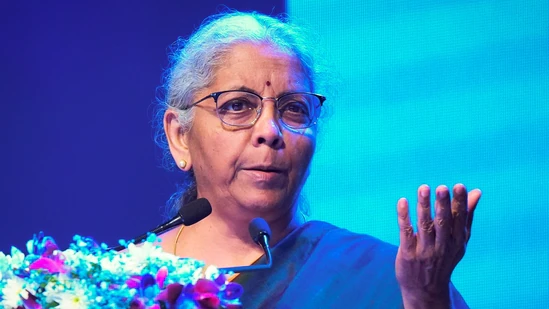
Sitharaman
New Delhi, September 5, 2025 – In response to mounting U.S. pressure and steep tariffs imposed on Indian exports, Finance Minister Nirmala Sitharaman made a resolute declaration: India will undoubtedly continue purchasing Russian crude oil, prioritizing its own national interest and economic rationale.
The Statement That Stood Unshaken
Speaking to CNN-News18, Sitharaman emphasized that India’s energy sourcing remains guided by pragmatic considerations—primarily price, logistics, and overall supply-chain efficiency. As she put it:
“We will have to take a call which (supply source) suits us the best. So we will undoubtedly be buying it.”
Highlighting crude oil and refined fuels as among the largest foreign exchange expenditures, she reiterated that India’s purchasing choices must align with economic imperatives.
The Broader Economic and Strategic Backdrop
India has become the largest buyer of Russian seaborne crude, receiving steep discounts that contribute significantly to its energy security.
Yet, the benefits are increasingly overshadowed by U.S. retaliation. Citing support for Russia’s war effort, the Trump administration slapped 50% tariffs on a broad range of Indian goods, a move that could slash exporters’ revenues by over $37 billion in the current fiscal year.
In light of these tariffs, Finance Ministry officials are preparing targeted relief packages for affected industries—particularly labor-intensive sectors such as textiles, jewelry, footwear, chemicals, and seafood. Measures may include credit guarantees and other forms of financial support.
Geopolitical Tensions and Multi-Alignment in Action
U.S. criticism has intensified alongside India’s increasingly visible diplomatic engagement with Russia. Prime Minister Narendra Modi’s recent meeting with President Putin in Tianjin underlines a “special and privileged” bilateral rapport.
With these developments, India’s stance reflects a broader strategy of multi-alignment—balancing ties with global powers while preserving strategic autonomy. Amid rising U.S.–India tensions, India’s choices signal defiance in the face of coercion.
Economic Trade-offs: Savings vs Costs
- Savings from discounts: Analysts estimate India’s oil imports from Russia have saved billions—some figures estimate up to $17 billion since early 2022.
- Tariff penalties: The 50% tariffs significantly harm India’s export potential, especially for small- and medium-scale industries.
The finance minister is confident, however, that structural tax reforms like GST will help cushion the impact on domestic businesses.
What Comes Next?
- Continued Russian oil imports driven by economic calculation.
- Domestic support measures to offset U.S. tariffs hitting exporters.
- Strategic positioning that maintains ties with Russia while hedging global diplomacy with resilience.
- Reforms like GST to provide indirect relief across the board.
Thanks For Reading